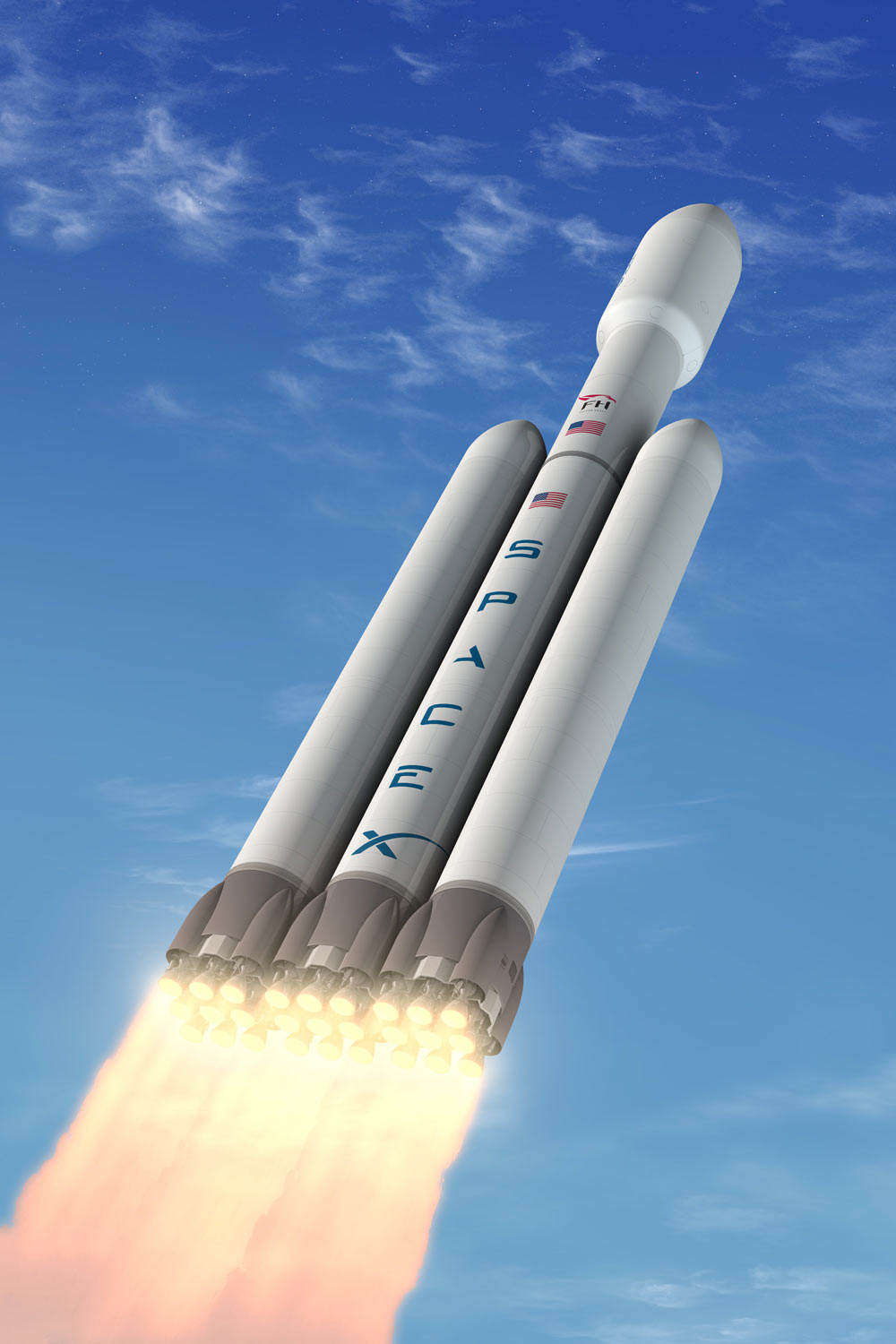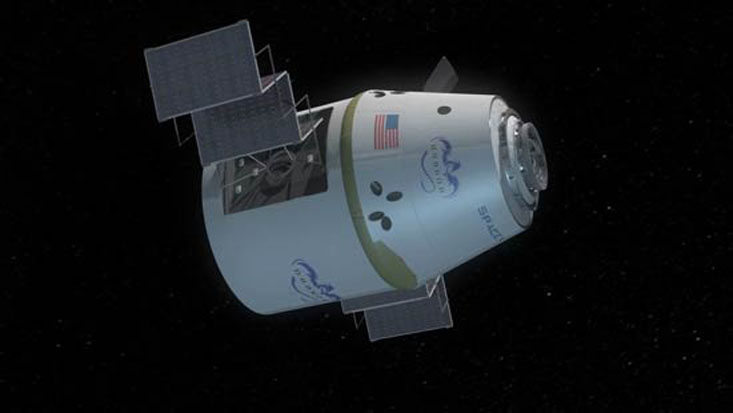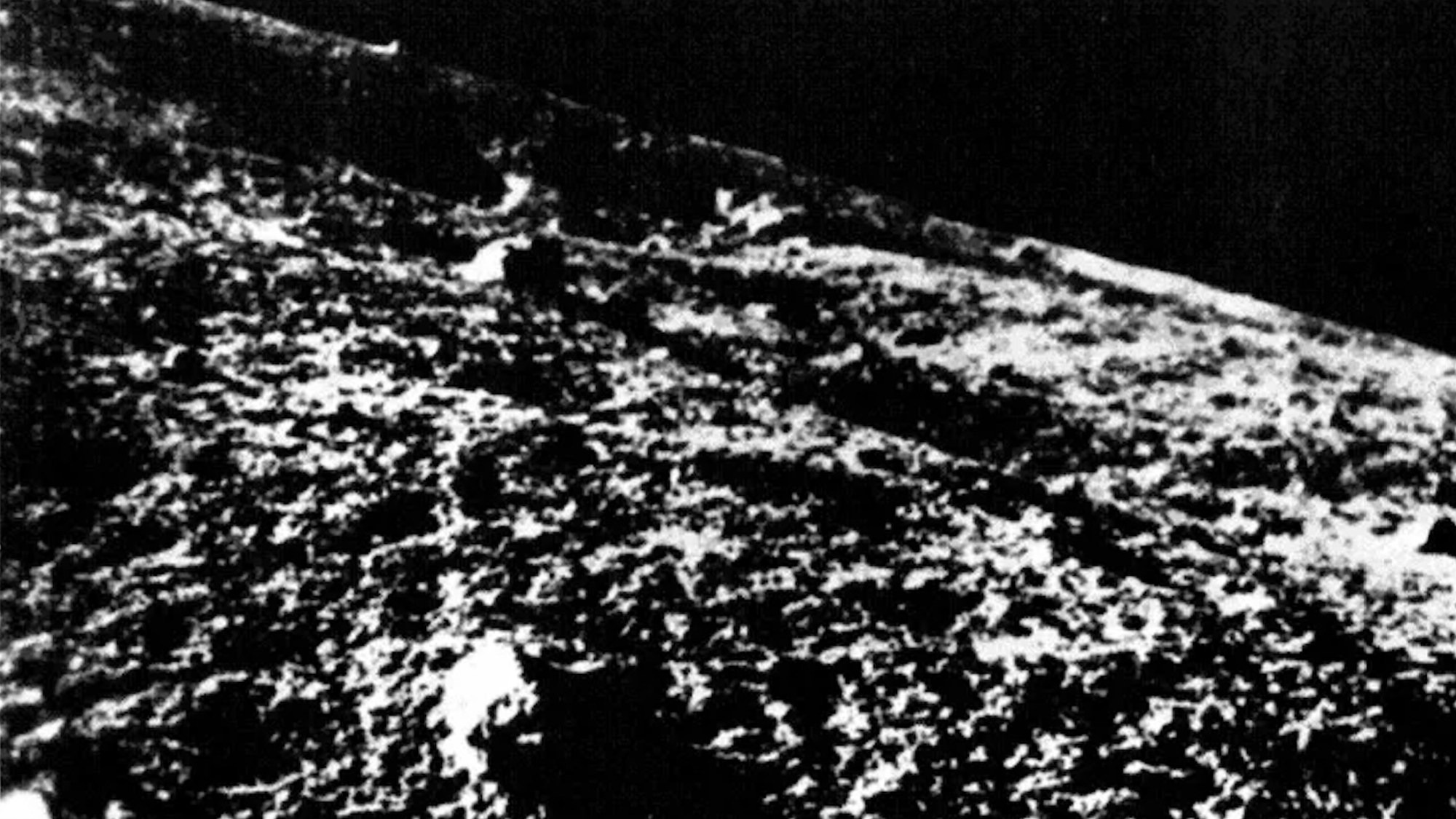SpaceX Signs 1st Customer for World's Most Powerful Private Rocket

Breaking space news, the latest updates on rocket launches, skywatching events and more!
You are now subscribed
Your newsletter sign-up was successful
Want to add more newsletters?

Delivered daily
Daily Newsletter
Breaking space news, the latest updates on rocket launches, skywatching events and more!

Once a month
Watch This Space
Sign up to our monthly entertainment newsletter to keep up with all our coverage of the latest sci-fi and space movies, tv shows, games and books.

Once a week
Night Sky This Week
Discover this week's must-see night sky events, moon phases, and stunning astrophotos. Sign up for our skywatching newsletter and explore the universe with us!

Twice a month
Strange New Words
Space.com's Sci-Fi Reader's Club. Read a sci-fi short story every month and join a virtual community of fellow science fiction fans!
The private spaceflight company SpaceX has signed its first launch customer for its new mega-rocket, the Falcon Heavy, even as the firm's first commercial spaceship prepares to return home from the International Space Station.
The Hawthorne, Calif.-based SpaceX announced Thursday (May 29) that it has landed a contract with satellite communications provider Intelsat to launch a satellite using the new Falcon Heavy rocket, which is expected to become the world's most powerful rocket in use when it starts flying.
"SpaceX is very proud to have the confidence of Intelsat, a leader in the satellite communication services industry," SpaceX CEO and rocket chief designer Elon Musk said in a statement. "The Falcon Heavy has more than twice the power of the next largest rocket in the world. With this new vehicle, SpaceX launch systems now cover the entire spectrum of the launch needs for commercial, civil and national security customers."
SpaceX's Falcon Heavy rocket is an evolution of the company's successful Falcon 9 rocket, which was used to launch the firm's unmanned Dragon capsule on its maiden voyage to the International Space Station last week. But instead of a single Falcon 9 rocket, the Falcon Heavy will feature a central core stage with the equivalent of two Falcon 9 rocket first stages strapped to its sides. [How SpaceX's Falcon Heavy Rocket Will Launch (Video)]
The Falcon Heavy rocket will stand 227 feet (69.2 meters) tall, and weigh about 3.1 million pounds (1.4 million kilograms). It will be capable of launching about 117,000 pounds (53,000 kilograms) of payload into orbit - twice the payload capacity of NASA's space shuttle, company officials have said.
The new rocket will be able to launch twice as much material as the most powerful rocket currently in use — the Delta 4 Heavy operated by the United Launch Alliance. Only NASA's Saturn V moon rockets, which launched astronauts to the moon during the Apollo lunar missions, could carry more weight into orbit, SpaceX officials have said.
Musk has said that the first test flight of a Falcon Heavy rocket could occur as early as 2013. The rocket is expected to liftoff from a new launch pad SpaceX is building at Vandenberg Air Force Base in California.
Breaking space news, the latest updates on rocket launches, skywatching events and more!
Under the Intelsat agreement, SpaceX agrees to launch an Intelsat into a so-called geosynchronous transfer orbit, a flight path that will deploy the satellite in an orbit that will allow it to reach a final geostationary orbit about 22,300 miles (35,900 kilometers) above the equator.
"Intelsat has exacting technical standards and requirements for proven flight heritage for our satellite launches," said Intelsat CTO Thierry Guillemin. "We will work closely with SpaceX as the Falcon Heavy completes rigorous flight tests prior to our future launch requirements."
You can follow SPACE.com Managing Editor Tariq Malik on Twitter @tariqjmalik. Follow SPACE.com for the latest in space science and exploration news on Twitter @Spacedotcomand on Facebook.

Tariq is the award-winning Editor-in-Chief of Space.com and joined the team in 2001. He covers human spaceflight, as well as skywatching and entertainment. He became Space.com's Editor-in-Chief in 2019. Before joining Space.com, Tariq was a staff reporter for The Los Angeles Times covering education and city beats in La Habra, Fullerton and Huntington Beach. He's a recipient of the 2022 Harry Kolcum Award for excellence in space reporting and the 2025 Space Pioneer Award from the National Space Society. He is an Eagle Scout and Space Camp alum with journalism degrees from the USC and NYU. You can find Tariq at Space.com and as the co-host to the This Week In Space podcast on the TWiT network. To see his latest project, you can follow Tariq on Twitter @tariqjmalik.

